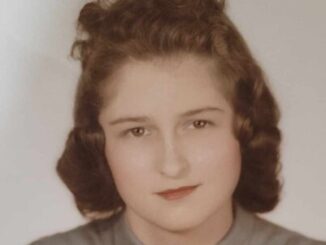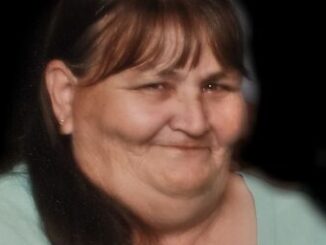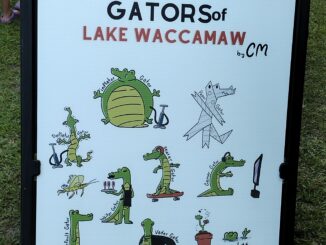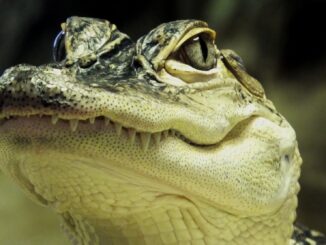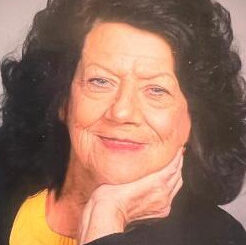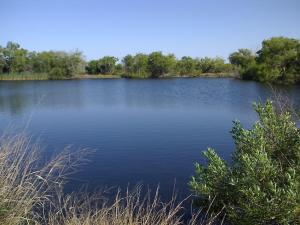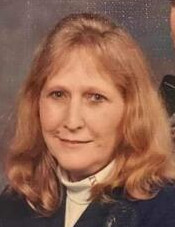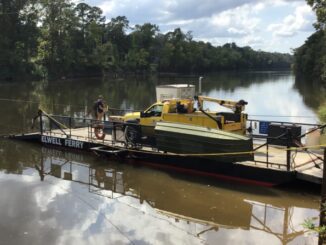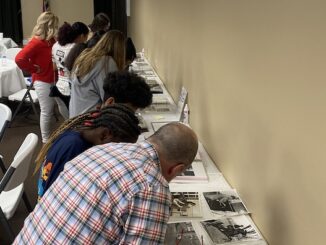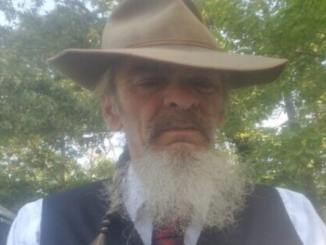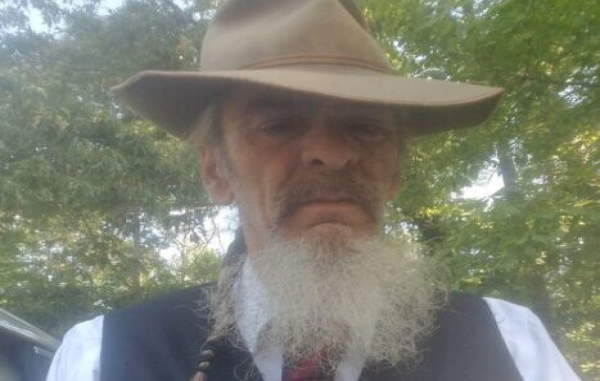
My friend Sherman Surles brought me a mess of fish the other day – nice fresh spots, still smelling of the salt water. Just as he shared them with me, I shared some with a neighbor, since spots are meant to be shared.
I am ashamed to admit it had been a while since I cleaned any fish, but it didn’t take long for the muscle-memory to kick in. My Case Sodbuster may not be the perfect knife for cleaning fish, but it does just fine for me. The scales slid off almost without effort, even along that ridge behind the dorsal fin that always seems to hold onto a few pesky scales that turn up when they are least expected, like on your dinner plate.
While I can’t say I like cleaning fish – I don’t think anyone truly does – it was nice to be able to stand there and let my hands do the work while I did nothing more than watch my enraptured cats for errant behavior and make sure I didn’t cut the spots heads off too far back, thus wasting some of that nice firm meat in the front.
These came from a net, much like those Hugh Howard “hung” in Hampstead when I was a bumbling young reporter looking for a story. Hugh’s front yard looked like the nest of a massive spider, what with all the nets that were draped from tree to tree (drying) and from post to post (being woven.)
Hugh was a professional, and his nets were highly sought after by Topsail-area fishermen. Unlike the cotton or jute nets of his grandfather’s day, Hugh used monofilament fishing line that was made for weaving nets. Generations back, he said, he had a multiple-great grandmother who actually spun the thread her husband used to hang nets, just a few miles down the road. He carried on a long conversation while his fingers, toes and the weaving “fid” moved delicately and by instinct, deep callouses immune to the monofilament slices I found comparable to mutant papercuts when I tried, and failed, to weave and knot even a few squares.
The day was miserably hot, as I recall, but he was a gracious host. We sat in his living room and savored cold tea and colder air conditioning, and I eagerly devoured the stories he told of storms and shrimp boats, pound nets and trawls and cast nets and how development had ruined the shellfishing (and that was almost forty years ago).
“Cold fish is good fish,” Hugh said, noting that he didn’t usually put a net out until around the first frost or shortly thereafter. The firmness of the meat was better, in his estimation. “People don’t like to buy mushy fish,” he said. He sent me home with a half-dozen that day, which I inexpertly cleaned and cooked for a bachelor supper.
The spots I cleaned the other night were indeed cold-water fish, even though that first fabled frost of fall hadn’t hit when Sherman hauled his nets aboard his boat on a southern-facing shore.
The Case finished off the cleaning process for the first fish, so I wiped my knife, grabbed the next entrée, and started scaling again.
Even with fish, I experience a certain (for lack of a better term) sadness at taking the life of any of God’s critters, although He gave them to us to eat after the fall in Garden of Eden. Indeed, His Son may have been a fulltime carpenter, but he was also something of a fisherman, since nobody can hang out with fishermen (especially netmen) and not end up fishing. I strongly suspect, however, that the fish came more willingly to our Lord and Saviour than they did to me on one particular night when I thought I was dying.
My heart was broken, and nothing else was going right. I decided to seek solace in a spot where I had successfully banished the bark of the black dog on previous occasions, namely a fishing pier. It was cold, bitterly cold, but I also knew that meant there would be fewer anglers, and that air barreling down from the Artic Circle might even make a few fish hungry.
I spent hours on that pier that night, wind-buffeted and numb, with hardly a nibble. I almost immediately spilled my coffee, a cup that had been purchased with the last dollar bill I had until payday. I had some frozen shrimp leftover from a previous expedition, and I was determined to tough out the howling wind and freezing spray until I caught something. Remember, I never saw big salt water until I was 18, and had only started fishing in that same brine a year or so before this episode. I erroneously thought that since I had (usually with success) held a freshwater pole in my hand since I was a toddler, the same principles would apply on what was essentially a bigger farmpond.
I was wrong.
Still as I got down to my last few pieces of pitiful bait, I managed to land one keeper-size spot. Whether the members of his school didn’t like him, or drew lots since they felt sorry for me, I have no way of knowing, but I managed to pull him in with salt encrusting my beard and freezing cold misery going down the back of my neck and under the collar of my old Army coat.
Flush with success, finally feeling like there might be a light other than a train at the end of the tunnel, I forced my fumbling fingers to get the fish off the hook over my empty cooler. Without as much as a thank you, the fish skittered off the pier and back to the safety of the deep, blue, angry sea.
I gave up, scavenged some change from the inside of my truck, and endured the disdain of the staff and other patrons at an all-night restaurant where they actually expected you to buy food with your free coffee refills. Somehow the sunrise made things a bit better, and I realized how the problems that drove me to the pier really weren’t insurmountable.
Fishing is not usually so philosophical with me. There is something about spots that flips that switch, however. After all, a school of spots led me to see one of the largest animals on earth one brisk October day.
My brother, a buddy and myself were on a charter boat that had been driven in by the weather. A humpback whale was feeding off Topsail Beach, and was indiscriminately seining blues and Spanish Mackerel along with the spots. The humpback was almost in the surf, scooping up hundreds of pounds of fish.
We saw the whale’s mouth once when he rolled and breached, and it looked like hundreds were pouring out of his mouth. We spent the rest of the morning filling a cooler with all three piscatorial species, always aware that the fishfinding radar showed the whale was larger than the 30-foot boat we considered a safe place.
Just after I finished cleaning those spots the other night, as Miss Rhonda was frying up our supper, the wonderful smell reminded me of dozens of hunting camps, family gatherings, fundraisers, church dinners, and any number of other pleasant times when people and fish came together to visit, laugh, enjoy the day’s bounty, or just eat. I remembered the rabbit hunts when our host brought out bags of salt fish for everyone’s lunch; it was usually mullet, but there were spots in there, too, tiny bones and all. Then there were the days on the trapline when a leftover plate of fish from the night before became a king’s banquet on the hood of the truck far back in the woods. I recalled a few times when the fish were cooked on a convenient bank that held a fire of driftwood, when the fish were (to borrow a phrase from Ruark) so fresh they were still arguing.
I heard that old friend Hugh is gone now; I think even his house has been torn down and replaced by something new.
But he was absolutely right – cold fish is good fish, if for no other reason than that it reminds one of friends who share, reasons to smile, and whales rolling in the surf.


